“Doing work” is the phrase that inmates of California’s New Folsom Prison have adopted to describe the group psychotherapy sessions that have been run there for more than 15 years now. Given that Folsom is a Level-4 penitentiary, in which murder is the least of the convictions for those imprisoned, most of whom will remain locked up there for the rest of their lives, issues of access and trust must have been as challenging as any documentary-maker could expect to encounter.
How The Work co-director Jairus McLeary came to resolve them is a story in itself (of which more later), but the fact that such trust was earned, in spades, is clear from every moment of his remarkable film. The Work is astonishing for many things, not least the degree to which it overturns our expectations of what a prison documentary might be. The inmates whose stories it partially tells may have been convicted of all manner of violent crimes, and were caught up in a gangland system in which extreme displays of masculinity were essential, but the predominant impression McLeary’s film leaves us with is of empathy, understanding, even gentleness (look out for a late scene in which that word features: how revealing it is!).
The moments of surrender to emotion sear viscerally
The Work follows the experience of participants in an intensive four-day therapy programme that is run at Folsom twice a year: they include outsiders, who have volunteered to join the therapy sessions, and inmates with the same motivations, as well as a range of facilitators, all of whom have been through the course before. Apart from the daily scenes of the incomers arriving at and leaving the facility (pictured below), the entire action is set in the prison chapel, which seems to accommodate around 60-80 men, divided variously into groups and sub-groupings; they enter an “Inside Circle”, reflecting the spatial arrangement of their interactions (lower picture). (The programme appeared at the end of the 1990s, and is coordinated by the Inside Circle Foundation, its motto “Helping prisoners and parolees heal from the inside”.)
Three incomers – bartender Charles, museum worker Chris, and teaching assistant Brian – are the film’s immediate subjects from outside. They come with issues that they feel they need to address, but without any certainty as to how things may proceed (degrees of scepticism are allowed all round). The insiders may be slightly less clearly delineated – though Vegas, Dante and Dark Cloud leave unforgettable impressions – and, having been through the course before, are the experienced ones, the guides (another expectation confounded?).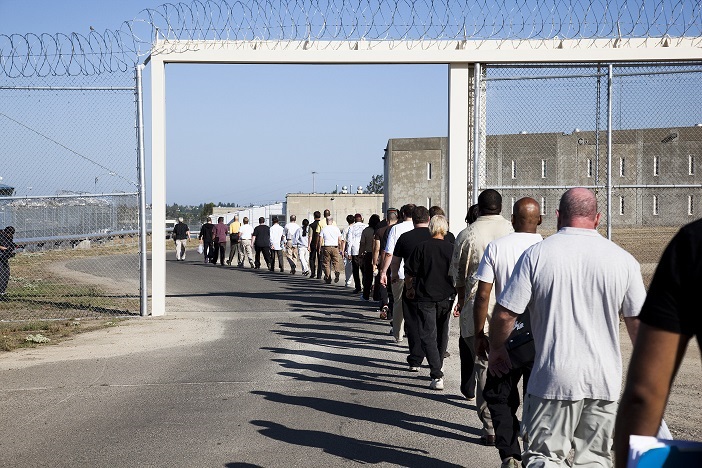 The contrast between different worlds is every bit as acute for the insiders: in their everyday prison routine, gang allegiances – we hear from Crips and Bloods, Aryan Brothers and the Native American Brotherhood – remain absolute, every encounter involving group loyalty. Beyond the chapel walls, in the prison yard, the admissions of vulnerability we witness here would be unthinkable, if not fatal, as would be the ability shown to engage so empathetically with erstwhile enemies.
The contrast between different worlds is every bit as acute for the insiders: in their everyday prison routine, gang allegiances – we hear from Crips and Bloods, Aryan Brothers and the Native American Brotherhood – remain absolute, every encounter involving group loyalty. Beyond the chapel walls, in the prison yard, the admissions of vulnerability we witness here would be unthinkable, if not fatal, as would be the ability shown to engage so empathetically with erstwhile enemies.
The moments of surrender to emotion sear viscerally, the acuity with which these individuals talk of their circumstances no less so. We move between more controlled discussions into instances that involve confrontation with the past, a journey accompanied by extreme grief and frantic energy. These outpourings are met with a support that is literally physical, as bodies move in a mass across the floor, or writhe in heaps on the ground to restrain eruptions of feeling. It’s interspersed, cathartically and necessarily, with moments of joking and laughter. The particular issue that comes up most powerfully in the four days depicted in the film is that of fathers and sons – fathers whose absence, physical and/or emotional, from the childhoods of their offspring has continued the destructive patterns by which they themselves were forged.
It’s clear, however, that another four days might have brought up different themes entirely, making The Work that rare thing, a documentary which, though it clearly involved absolute planning and preliminary engagement, evolved in a completely uncharted environment. This DVD release gives valuable perspective on the process, a “framing” of the kind mentioned in the film itself: what we see on screen seems almost completely unmediated.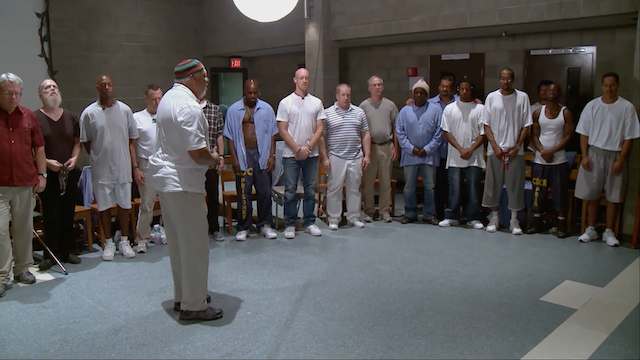 The main extra is the press conference from this year's Sheffield Documentary Festival (where The Work won the Audience Award), telling us something of how the film came about. Joined by his co-producer brothers Eon and Miles, Jairus McLeary recalls how he came to Folsom, through their father James, who had grown up in similar gangland circumstances to the prison inmates, albeit in Chicago (McLeary Sr. is now a psychologist, and CEO of Inside Circle). Jairus, who also contributes a booklet essay, first participated in “The Work” in 2003 and has since been through it many times; he made sure that all crew members also took part, which must have paid off, notably in the ease with which cinematographer Arturo Santamaria works: assisted by a team of assistants, his roving cameras capture, seemingly effortlessly, the fluid circumstances of the sessions.
The main extra is the press conference from this year's Sheffield Documentary Festival (where The Work won the Audience Award), telling us something of how the film came about. Joined by his co-producer brothers Eon and Miles, Jairus McLeary recalls how he came to Folsom, through their father James, who had grown up in similar gangland circumstances to the prison inmates, albeit in Chicago (McLeary Sr. is now a psychologist, and CEO of Inside Circle). Jairus, who also contributes a booklet essay, first participated in “The Work” in 2003 and has since been through it many times; he made sure that all crew members also took part, which must have paid off, notably in the ease with which cinematographer Arturo Santamaria works: assisted by a team of assistants, his roving cameras capture, seemingly effortlessly, the fluid circumstances of the sessions.
The filming took place in 2009 after which, though it’s not made explicit here, the McLearys clearly hit a post-production hiatus, resolved only when British co-director Gethin Aldous came on board in 2015. He was accompanied, not least, by editor Amy Foote: the full material shot was presumably enormous, including extensive formal pre-interviews with the founders of Inside Circle which, given the intensity of the direct material, were never used.
The immediacy of the experience is such that contemplation comes only later. We are left to wonder where exactly the concept behind “The Work" came from. A prison riot at Folsom in 1997, which was followed by a seven-month lock-down, may have played a part in affecting the attitudes of the authorities. There’s mention of the Inside Circle founders being influenced by the writings of Viktor Frankl, the Austrian psychiatrist (and Holocaust survivor), while the more extreme moments of emotional release hint at Arthur Janov’s Primal Therapy. But finally this is a profoundly human-to-human experience, one which offers, in the bleakest of environments, a sense of hope against hope. Among the motivations for prisoners to take part is that it may influence their chances for parole: over its history, some 40 or so have been released in such a way. Watching The Work, you won't forget one of its inmate-participants, Vegas – he is now one of them.
Overleaf: watch trailers for The Work

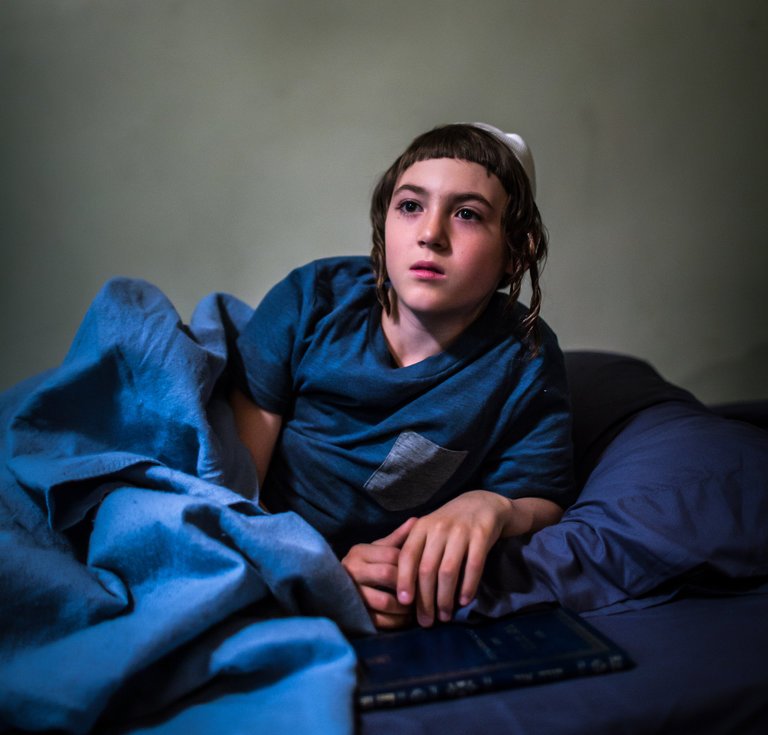 Filmed in Borough Park, an ultra-orthodox Jewish neighbourhood in Brooklyn, it’s to Weinstein and his producer Danny Finkleman’s enormous credit that they managed to win enough trust from the local Hasidic community to be allowed extensive access to the streets, restaurants and apartments of this closed world. Ultra-Orthodox leaders don’t allow devout followers to go to the cinema or have TV or the Internet at home; there is a great distrust of all modern media. Cast entirely from non-actors, the script was developed from Menashe Lustig’s own life story – he really is a widowed grocer with a young son – although it leaves out his sideline as a
Filmed in Borough Park, an ultra-orthodox Jewish neighbourhood in Brooklyn, it’s to Weinstein and his producer Danny Finkleman’s enormous credit that they managed to win enough trust from the local Hasidic community to be allowed extensive access to the streets, restaurants and apartments of this closed world. Ultra-Orthodox leaders don’t allow devout followers to go to the cinema or have TV or the Internet at home; there is a great distrust of all modern media. Cast entirely from non-actors, the script was developed from Menashe Lustig’s own life story – he really is a widowed grocer with a young son – although it leaves out his sideline as a  The contrast between different worlds is every bit as acute for the insiders: in their everyday prison routine, gang allegiances – we hear from Crips and Bloods, Aryan Brothers and the Native American Brotherhood – remain absolute, every encounter involving group loyalty. Beyond the chapel walls, in the prison yard, the admissions of vulnerability we witness here would be unthinkable, if not fatal, as would be the ability shown to engage so empathetically with erstwhile enemies.
The contrast between different worlds is every bit as acute for the insiders: in their everyday prison routine, gang allegiances – we hear from Crips and Bloods, Aryan Brothers and the Native American Brotherhood – remain absolute, every encounter involving group loyalty. Beyond the chapel walls, in the prison yard, the admissions of vulnerability we witness here would be unthinkable, if not fatal, as would be the ability shown to engage so empathetically with erstwhile enemies. The main extra is the press conference from this year's Sheffield Documentary Festival (where The Work won the Audience Award), telling us something of how the film came about. Joined by his co-producer brothers Eon and Miles, Jairus McLeary recalls how he came to Folsom, through their father James, who had grown up in similar gangland circumstances to the prison inmates, albeit in Chicago (McLeary Sr. is now a psychologist, and CEO of Inside Circle). Jairus, who also contributes a booklet essay, first participated in “The Work” in 2003 and has since been through it many times; he made sure that all crew members also took part, which must have paid off, notably in the ease with which cinematographer Arturo Santamaria works: assisted by a team of assistants, his roving cameras capture, seemingly effortlessly, the fluid circumstances of the sessions.
The main extra is the press conference from this year's Sheffield Documentary Festival (where The Work won the Audience Award), telling us something of how the film came about. Joined by his co-producer brothers Eon and Miles, Jairus McLeary recalls how he came to Folsom, through their father James, who had grown up in similar gangland circumstances to the prison inmates, albeit in Chicago (McLeary Sr. is now a psychologist, and CEO of Inside Circle). Jairus, who also contributes a booklet essay, first participated in “The Work” in 2003 and has since been through it many times; he made sure that all crew members also took part, which must have paid off, notably in the ease with which cinematographer Arturo Santamaria works: assisted by a team of assistants, his roving cameras capture, seemingly effortlessly, the fluid circumstances of the sessions.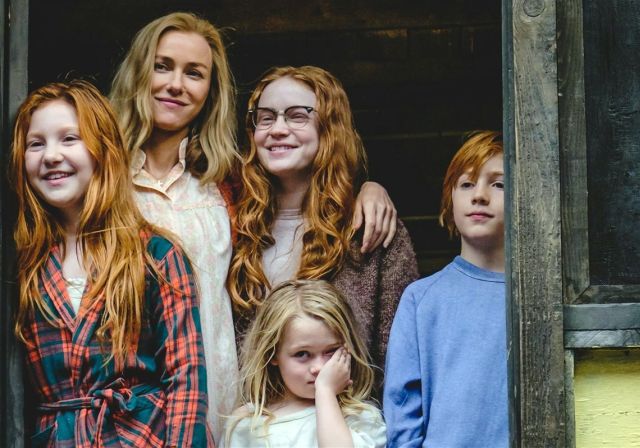 There's nothing safe or reined-in about Harrelson's unbridled portrait of a man facing down personal demons, starting with drink, and clearly wanting to do right by his artist-wife (Naomi Watts, above left) and their numerous children, of whom young Jeannette would appear to be the most ambitious. There's tough love and then there's parenting that finds mum Rose Mary more interested in her latest canvas than in feeding her burgeoning family, who at one point take to dining on a mixture of butter and sugar in order to survive.
There's nothing safe or reined-in about Harrelson's unbridled portrait of a man facing down personal demons, starting with drink, and clearly wanting to do right by his artist-wife (Naomi Watts, above left) and their numerous children, of whom young Jeannette would appear to be the most ambitious. There's tough love and then there's parenting that finds mum Rose Mary more interested in her latest canvas than in feeding her burgeoning family, who at one point take to dining on a mixture of butter and sugar in order to survive. 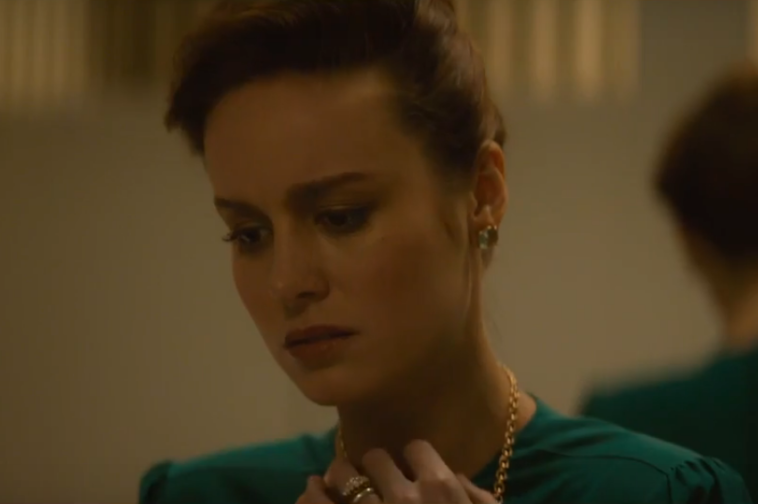 The flashbacks to the child-woman that is Jeannette, glimpsed alongside the parental bohemians who will in time join the ranks of New York's homeless, score pretty strongly throughout, leaving the contemporary sequences involving Jeannette's occupancy of 1980s
The flashbacks to the child-woman that is Jeannette, glimpsed alongside the parental bohemians who will in time join the ranks of New York's homeless, score pretty strongly throughout, leaving the contemporary sequences involving Jeannette's occupancy of 1980s